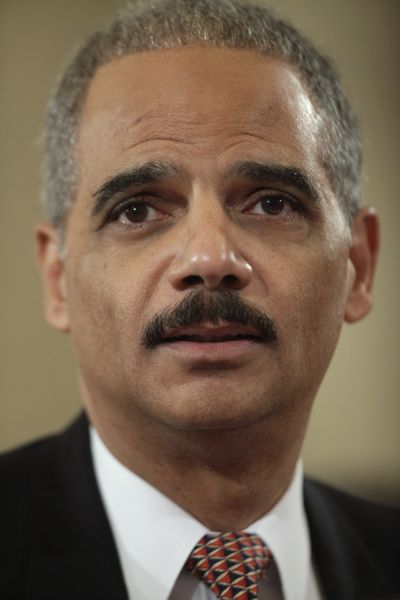Holder confirmed as attorney general

WASHINGTON – The Senate confirmed Eric Holder as the nation’s first African-American attorney general by a vote of 75-21 Monday, opening a new chapter for a Justice Department that had suffered under allegations of improper political influence and policy disputes over wiretapping and harsh interrogation practices.
Holder, 58, will arrive at the Justice Department headquarters in Washington today for a swearing-in ceremony and to greet some of the department’s 110,000 employees.
“The need for new leadership at the Department of Justice is as critical today as it’s ever been,” said Senate Judiciary Committee Chairman Patrick J. Leahy, D-Vt. “This confirmation is going to do a great deal to restore the morale and the purpose throughout the department.”
The Senate vote occurred four days after Holder overcame concerns by a small but vocal group of GOP lawmakers over his position on national security and gun rights, as well as his recommendations in two controversial clemency decisions by President Bill Clinton.
Holder’s advocates marshaled critical support from a broad base of federal and state law enforcement groups as well as a bipartisan coalition of former Justice Department leaders, including onetime Deputy Attorney General James B. Comey, former FBI Director Louis J. Freeh and President George W. Bush’s terrorism and homeland security adviser Frances Fragos Townsend.
By all accounts, Holder is among the most credentialed lawyers ever to become attorney general. He began his career as a public corruption prosecutor before serving as U.S. attorney in the District of Columbia and as a Superior Court judge. Holder later operated as second in command at the Justice Department during the later years of the Clinton administration.
But his service in the Clinton years invited criticism from GOP lawmakers, who also questioned his approach to hot-button terrorism policies.
At a grueling, seven-hour hearing last month, Holder labeled as “torture” the simulated drowning technique called waterboarding and vowed to make national security his top priority.
Holder also said that he would look askance at efforts to “criminalize policy differences” but did not conclusively rule out prosecution of Bush administration officials for their involvement in detainee questioning and warrantless surveillance operations. That issue emerged as a pivot point for conservatives such as Sen. John Cornyn, R-Texas, who voted in opposition to Holder.